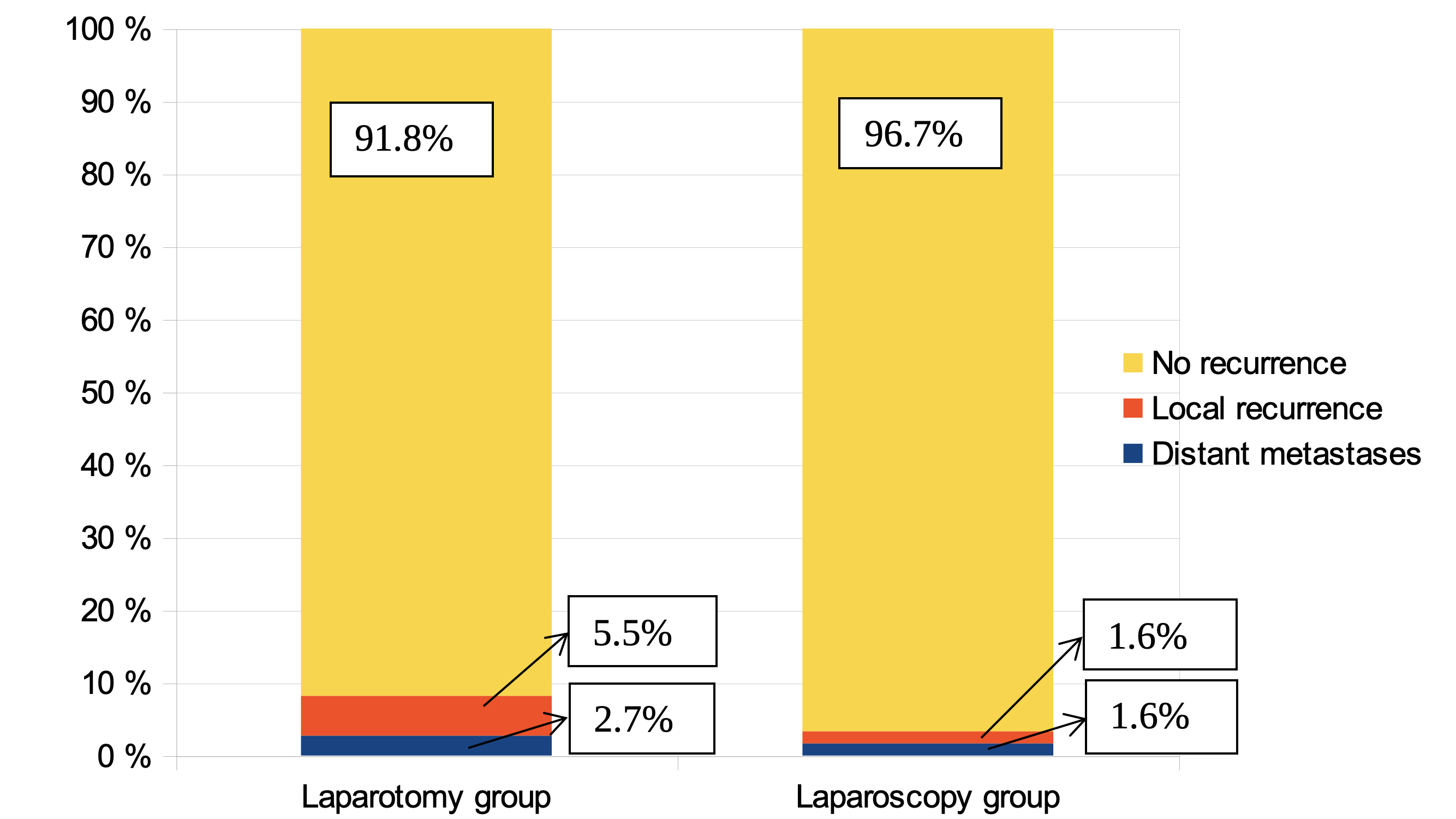Laparoscopy versus laparotomy for the management of early-stage endometrial cancer: Effect on oncological outcomes
Primerjava onkološkega izhoda kirurškega zdravljenja zgodnjega stadija raka endometrija glede na vrsto kirurškega pristopa (laparoskopski, laparotomijski)
DOI:
https://doi.org/10.18690/actabiomed.247Keywords:
disease-free survival, endometrial cancer, laparoscopy, laparotomy, recurrence rateAbstract
Background and aim: Endometrial cancer is the most common gynecologic malignancy diagnosed in an early stage in 80% of patients. The standard treatment for this includes hysterectomy, bilateral salpingo-oophorectomy, and pelvic lymph node dissection. The advancement of laparoscopy has facilitated the use of minimally invasive techniques also in the field of oncologic surgery. Every new approach should be evaluated in terms of oncological outcomes. This study aimed to compare the oncological outcomes among women with early-stage endometrial cancer treated using laparotomy and a laparoscopic approach.
Methods: We conducted a retrospective analysis of patients with early-stage endometrial cancer treated in the Department of Gynecologic Oncology and Breast Oncology, University Medical Center Maribor. All consecutive patients who underwent laparotomy (from 2001 to 2006) or laparoscopy (from 2008 to 2016) were included. All patients had a standard surgical treatment: hysterectomy, bilateral salpingo-oophorectomy, and pelvic lymph node dissection. We analyzed the prognostic factors in each group of patients, which could affect our primary and secondary goals. The primary goal (the recurrence rate) and secondary goal (the disease-free survival) were determined during a follow-up of at least 5 years.
Results: A total of 73 consecutive patients who underwent laparotomy from 2001 to 2006 and 60 consecutive patients who underwent laparoscopy from 2008 to 2016 were included in the analysis. No statistically significant between-group difference was found in the prognostic factors, except the adjuvant radiotherapy being more frequent in the laparotomy group (change in clinical practice). No statistically significant between-group difference was found in the disease recurrence rate [6/73 (8.2%) laparotomy group vs. 2/60 (3.3%) laparoscopy group (P = 0.238)] or in the disease-free survival during at least 5-year follow-up (P = 0.180).
Conclusion: No statistically significant difference was found in oncological outcomes during a 5-year follow-up of women with early-stage endometrial cancer treated using laparotomy or laparoscopy. This finding was an important retrospective overview, but future prospective randomized trials should validate this.
Downloads

Downloads
Published
Issue
Section
License
Copyright (c) 2023 Maja Pakiž, Ina Šibli, Andrej Cokan, Rok Šumak, Igor But (Author)

This work is licensed under a Creative Commons Attribution 4.0 International License.